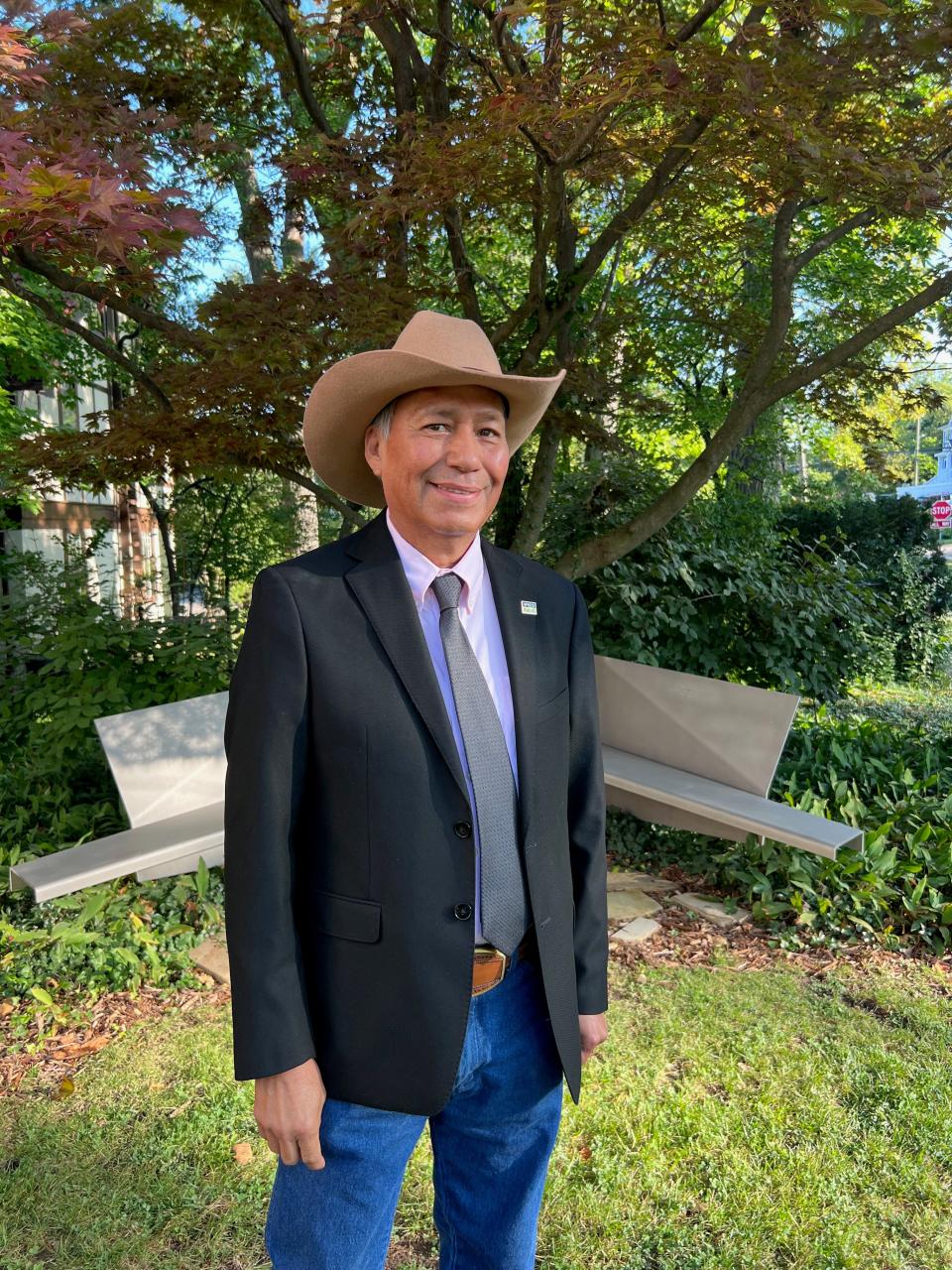Mexican journalist in Michigan wins asylum, finds works on farm
For years, Emilio Gutiérrez Soto was a reporter in Mexico, where he helped uncover corruption and abuses in the country's military.
But after facing threats and a raid of his home, Gutiérrez Soto fled in 2008 to the U.S. border, seeking asylum along with his son. He was detained for several months by immigration authorities in the U.S., later released, but then detained again in 2017 by Department of Homeland Security agents after he delivered a National Press Club speech that criticized U.S. policies toward Mexican immigrants. He was abruptly handcuffed during a check-in with authorities and placed behind bars for nine months before being released and becoming a Knight-Wallace Fellow for Journalists at the University of Michigan in Ann Arbor.
Now, after 15 years of legal fights and appeals, Gutiérrez Soto can finally remain in the U.S. after the Board of Immigration Appeals ruled this month he is eligible for asylum.
"I feel happy," Gutiérrez Soto, 60, of Ann Arbor, told the Free Press by phone. "I hope to have a better life."

Gutiérrez Soto now works at a farm in Dexter, which he said he enjoys and will continue to work at for now to meet his obligations. He said he hopes to later get back into journalism and writing. For now, "I need to take a seat" and think about future plans, Gutiérrez Soto said. He currently lives by himself in an apartment and his son, recently married, also lives in Michigan.
He said he hopes his case will highlight the importance of journalists around the world who face threats.
“I hope that my case will shine a light on the need to protect those journalists in Mexico and around the world who are working and risking their lives to tell the truth," he said in a statement.
More: U-M fellowship director calls for ICE to release Mexican journalist
"The opinion is significant not only because it definitely finds that Gutiérrez is entitled to political asylum, but also because it recognizes that journalists like Gutiérrez belong to a recognizable group that is singled out for persecution," said the National Press Club in a news release. "This finding could help other journalists who are seeking asylum."
The decision by a three-judge panel of the Board of Immigration Appeals reverses previous rulings made by Robert Hough, a federal immigration judge in El Paso, Texas, who twice denied Gutiérrez Soto's request for asylum.

"Hough said he did not believe Gutiérrez is a journalist, even though the case file included more than 100 clips from Gutiérrez’s career as a reporter," the National Press Club, which has advocated for him, said in its news release. "The following year, librarians and translators at the University of Michigan translated more than 100 of Gutiérrez's bylined stories into English because Hough wouldn't accept them as evidence in Spanish."
In a five-page opinion, the Board of Immigration Appeals said Hough's two earlier decisions against Gutiérrez were “clearly erroneous," the National Press Club noted in its statement. Hough had a 95.6% denial rate, the highest among the six immigration judges of El Paso, reported The Texas Tribune, citing records of the Transactional Records Access Clearinghouse at Syracuse University.

Gutiérrez Soto “has a well-founded fear of persecution in Mexico,” the Board wrote, citing his “journalistic work that was critical of the military” and the “numerous letters and extensive declarations in support."
Since 1992, more than 150 journalists have been killed in Mexico, according to the Committee to Protect Journalists.
In Mexico, Gutiérrez Soto worked for several newspapers. At his last newspaper job before fleeing to the U.S., he was working in 2008 at the Ascension, Chihuahua bureau of El Diario del Noroeste.
The reporting that prompted a crackdown by the military was a story he wrote about military officials robbing and extorting guests at a hotel. He was threatened by the military in front of his son, which he wrote about. Then, his home was raided without a warrant on May 5, 2008.
"Subsequently, a confidential source informed him that a hit had been put out on him," said the National Press Club.
In October 2017, he was presented with the John Aubuchon Press Freedom award by the National Press Club at an event in Washington D.C., where he spoke, criticizing U.S. immigration policy. A couple of months later, on Dec. 7, authorities "abruptly handcuffed him during a routine check-in at the El Paso office and drove him toward the nearby border for deportation," the club said.
The Board of Immigration Appeals ordered the Department of Homeland Security not to deport him, but he remained in detention. The Press Club, the Catholic bishop of El Paso and other advocates pushed for his release. After several months, he "was released only after a class of students at Rutgers University Law School International Human Rights Clinic, headed by Professor Penny Venetis, brought a habeas corpus case at the behest of the National Press Club," the Press Club said.
“It has been a long journey, and these past 15 years have been difficult," Gutiérrez Soto said. "But ... justice has won."
The Associated Press and the El Paso Times contributed to this report.
Contact Niraj Warikoo: nwarikoo@freepress.com, X @nwarikoo, Facebook.com/nwarikoo.
This article originally appeared on Detroit Free Press: Mexican journalist Emilio Gutiérrez Soto wins asylum, works on Michigan farm

